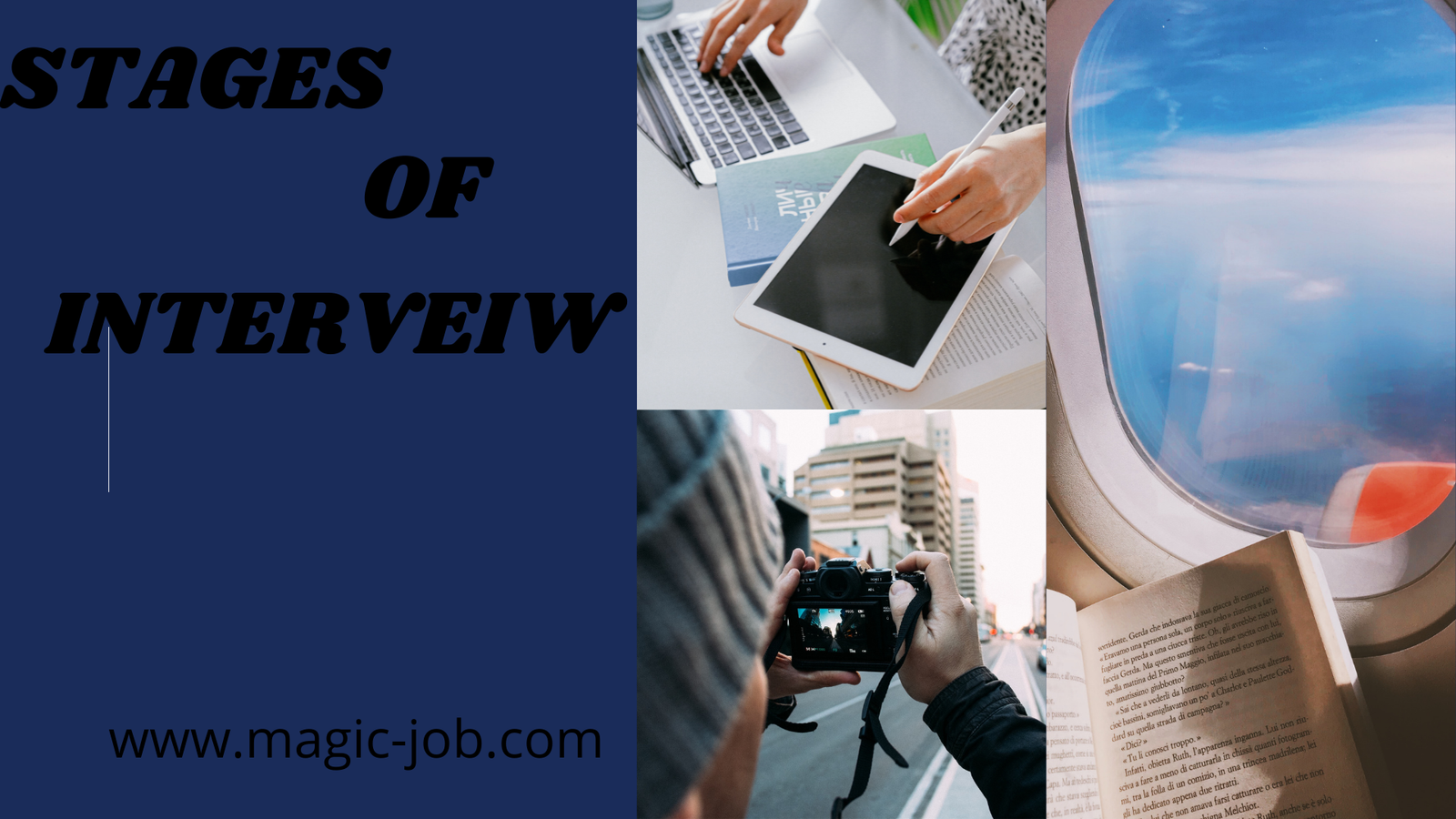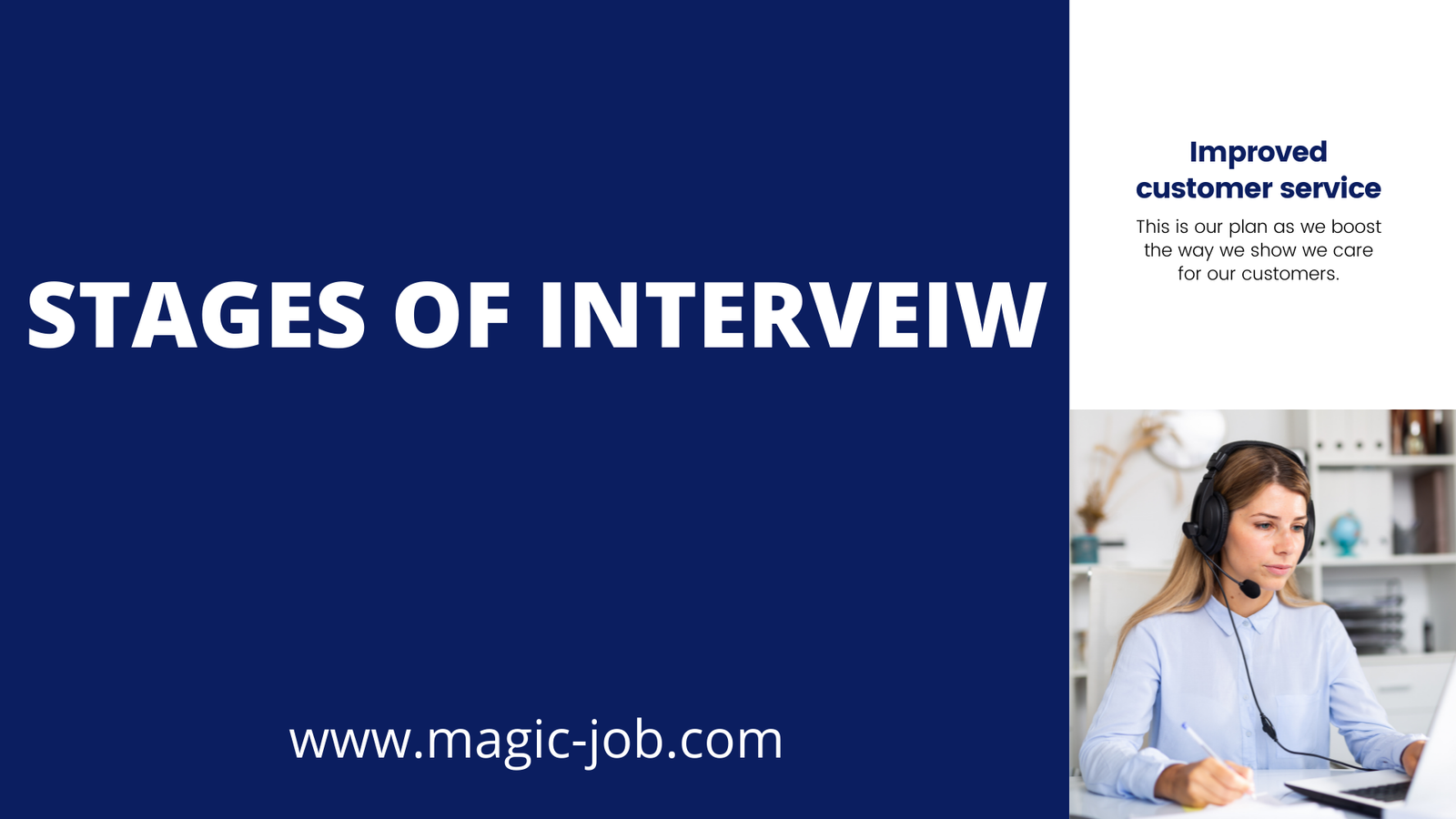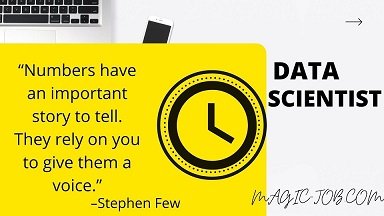What are the stages of Interviewing?

Not long ago the process of job search and interviews was much simpler than today: find a position in the category of classified advertising activities in a newspaper or online, respond to an ad or post a job with your basic sequence resume, a few days later find out. Call a hiring interview manager, answer a few soft questions about your background and knowledge, get a job right away to earn more than you did, start work the next day.
As we all know, today’s job market is very different from
last year when employers are more selective than those they use to choose who
to negotiate with. Today, if your resume is done with an employer-based
automatic scan, you will most likely receive a one-on-one test, and if you are
successful, you may have a few conversations in the area.
Your goal at this time is to impress your interviewing employer with your position information, the way you talk about the job, and how your knowledge and success will benefit the company.
Every interview will be different in its own way and have its own flow and personality as I like to call it. Knowing the basics of the interview process will help alleviate some of the stress of looking for a job, the angst of wondering what an employer is doing and will help you present yourself with greater confidence.
Pre-Screening Stage:
The purpose of this section, which has become quite commonplace in today's labor market, is to determine whether you meet the minimum qualifications if you appear to be well-versed in culture and whether the company can afford you.
Individual test and interview calls can come at any time and can be made by a low-level inspector, recruiter, hiring manager, automated interview system, or "Skype" phone where you talk and respond to a potential employer. with your computer's webcam. Typical interviews for each test can be less than 30 minutes or maybe longer depending on the depth of the questions. There will usually be a review of your resume, your information, your background, and your current employment status so it is important that you are ready for a call like this at any time.
If you are working with an employer, be prepared to deal with a salary issue. Remember, one of the main purposes of each testing process is to determine if the company can afford you. This is not the time to tell an employer that your salary is "negotiable." They will need a number or range of salaries to keep the process moving forward.
Try to have your resume and work post next to your phone so you can easily drag it to talk about your experience and how it fits the situation. Make sure you get the name, phone number, and email address of the person you are talking to so you can track with snail email.
Discussion Date:
Try not to arrive 10 minutes early for your interview. Find a toilet and take care of any business waiting, check and comb your hair, refresh your makeup if you are a woman, look to see that there is nothing in your teeth, and make sure your look is professional.
As most professional athletes do, use your mind to wait and see if you can be the best candidate they have ever interviewed. Then take a deep breath, relax, gather your thoughts and get ready for the show. Remember, when you walk in the door of an office your interview has already begun.
The first person you may meet on the day of your interview will be the secretary or receiver; treat them kindly and respectfully as they will not be asked to express their views on you to the hiring manager once you have left.
You may be asked to take a seat in the lobby or in the conference room and wait for the interviewer to arrive. While you wait, stay relaxed and control any shaking habits. At this point, I would like to be reminded of what a duck is; calm in the face, but rowing like crazy underwater. So, get used to being like a duck.
And, without being overly visible, look around; get to know about the workplace, the type of people coming and going, and the general personality and culture of the office. You are exploring what I call your 'cultural merit.'
Introductory stage:
This is the stage where you meet your first interviewer and where the interview is won or lost. At this point the first ideas and your body language are the keys; stand up straight, smile, look them in the eye, shake hands firmly and introduce yourself in an encouraging voice. It says, "It's nice to know you, and you say their names again?" This surges your chances of retention all their important names. Then request a business card so you can send a thank-you note with the correct spelling and address at the end of the conversation.
This regular exchange of words, a short talk, and general questions is your chance to make a good impression. Try and talk about the weather or traffic to avoid personal matters, sports teams, politics, religion, or any other such controversial topic. No need to soak up your chances here if your interviewer likes the Giants and likes the Jets.

Starting Stage:
Pay close attention to your surroundings, especially the types of pictures or objects that adorn an office or conference room. Make positive, non-personal comments about them to help make connections and break the ice.
During this phase, the interviewer will try to help you feel free from the constant tension and stress. He will work to build a relationship and move the conversation to the context of the conversation.
General Conversation Stage:
The interviewer may start by explaining the agenda and will certainly scan your progress. If the time has not been set, try and get an idea of ​​how long the interview can be so that you can adjust your answers to the time available.
Because of the different personalities:
The questions in this interview section may be open-ended or some closed-ended conclusion. Occasionally, work-related issues or problems will be presented in order for you to comment on your solution.
(Note - Beware of troubleshooting questions as well-known companies use negotiations to obtain free consultations.)
Be concise, clear, confident, and to the point when answering questions. Focus on the program and talk about Who, What, Where, and How with your information. In other words, tell the story using direct and indirect details. It is suggested that you avoid 'Why' in your comments as this may result in a personal, objective response rather than an honest, detailed one.
On-a-roll Stage:
As the interview progresses, the interviewer will begin to ask specific questions to see if you have the qualifications needed to succeed and how to get into the company. You will need to be able to discuss and demonstrate how your knowledge and qualifications match the requirements of the job and that the way you work, the values, ​​and the style are in line with the organization's culture.
Asking Questions:
In my opinion, this is probably the most important part of every interview. At this stage you will be asked if you have any questions; this is a sign that the interview is over, the interviewer has made a decision and you should be ready to go.
At this stage, many applicants lose their ability by asking open-ended questions which shows that they did not prepare well or did not listen well throughout the interview.
Instead, I think it is better to acknowledge the interviewer and the interviewee as:
"I had a lot of queries when we ongoing, but you did a good job answering the one I had. Please ask two things but, first, is it okay if you move me quickly to see what it would be like to work here, and lastly, where are we going from here?"
With that answer you should be told how to follow; they will contact you or you should contact them again as soon as possible.
And you don't want to ask about wages or benefits at this time; wait until the promise is made. If you reopen the interview at this time after the interviewer has closed it, you run the risk of asking or saying something that might end your consideration.
Closing stage:
As a presentation, the closing phase will be a short but important part of the interview.
Once you are surrounded by the center and told what the next step is, thank your interviewer for the time he or she took to interview you; repeat that you are interested in the position and look forward to speaking with them soon.
Be sure to shake hands firmly, smiling while looking into the eyes and gently stepping out of the stage to the left.
When you leave, say goodbye to the secretary or receptionist you met when you arrived, as, too, he or she may be asked to express his or her views on you to the hiring manager after you leave.
Tracking Stage:
To stand out from the crowd, as soon as you leave the building, fill in and drop off your thank-you postcard mailbox at your nearest post office. Notes should thank them for the time taken and re-express your interest instead.
If you have never heard from an employer when they said they would contact you, you are probably not their first person.
If this happens, send a short email to the person asking questions that repeat your interest but do not call to check your status. The reason is that I get from job search notebooks, comments from overworked employers, and employers who may choose to be extremely aggressive in seeking answers; this simply causes them to press the remove button that sends you to the cornfield.
What I have found by talking to the election winners, is that if you are the one who wants to be hired, you will be tracked down at work as soon as possible around your head. If you are in second place you will probably not hear anything.
Reference Stage:
In today’s job market, employers check indicators and do background checks on almost every candidate they wish to hire.
Before being offered a job, an employer will likely ask for a list of references.
If you are using a person as a reference it is a good idea to ask him or her if he or she would like your reference and whether it is appropriate for him or her before submitting his or her potential employer. The last thing you want is for your reference to answer the reference test phone by saying "Who is using me as a reference?"
Background Inspection Stage:
If the employer will officially inspect your domain, he or she will need to get your signature before his or her check; be sure to request a copy of their background report for you. A checkbox of some kind should be on the back of the authorization form where you can request a copy. If not, write in the form you would like a copy of their domain review report for.
You want a copy of whatever the employer finds in your background check as it tells you what they want and allows you the opportunity to correct any errors that may arise.
Assignment Stage:
This is what we all expect; job application. If they have not already done so, you may need to ask them in writing. In writing, everyone is clear about the start date, presentation time or test if available, starting salary, working review dates, benefits, working hours, and job title.
In conclusion:
The stages you will pass in a job interview will depend on the employer's negotiating actions, the level of position you are applying for, and the knowledge and training of the H.R. of the people you will be interviewing.
Remember to keep your expertise at all times, even in the worst of conversations. Treat everyone you meet during the conversation with the same level of respect and respect that you would like to be treated. This will create the strongest possible impression, and, in turn, convince the employer to make the best choice in offering the hiring.








-16376880480.png)
